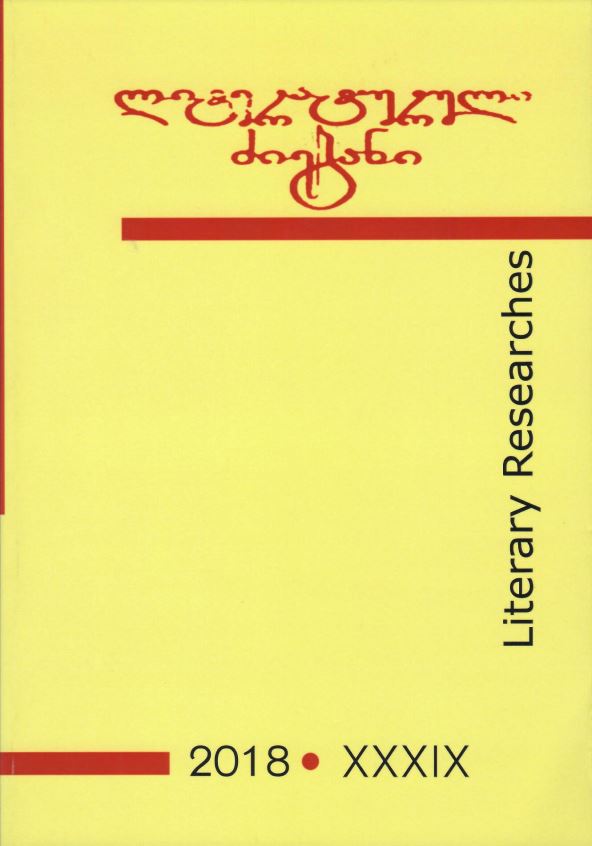Relation of Friedrich Nietzsche to Symbolism and Individualism: Critique of Galaktion’s Reception
Published 2018-12-20
Keywords
- Symbolism,
- Individualism,
- Aristocratism,
- Music,
- Decadence
How to Cite
Abstract
The philologist, more than the poet, has to be attentive towards the context and preciseness while interpreting, so I think it is necessary to talk about problems of Galaktion’s reception of
Nietzsche, especially when, Nietzsche demands his texts to be read with attention and to divine his united philosophical system, unlike some contemporary tendencies, which is based on misinterpretation of deconstruction which itself is inspired by Nietzsche.
Galaktion does not say concretely what relation Nietzsche has to symbolism, however from his short sketch we can understand the context and talk about it generally. There is significant difference between decadents’ “Aristocracy of the spirit” and Nietzschean radical aristocratism. Besides that, Nietzsche accepts some kind of “Art for artists” which implies the art of form, surface, but he condemns purposless “L ‘art pour l’art”, as for him the art has purpose and it is life affirmation.
Nietzsche’s emphasize on the music of text is also different from the position of symbolists,
who share Wagnerian understanding of the music. Nietzsche condemns using music for suggestion and effects and recognizes only “innocent music”, which makes effect naturally, unintentionally, because of the artist’s healthiness, so Nietzsche criticizes Wagner and his followers – Parisian decadents, emphasizing that Wagner’s music is associated with some ambiguous suggestions and lacks clearity, which is a main advantage of the music towards linguistic expression. For Nietzsche, Christian, escapist idealism of Wagner and decandents is also unacceptable. Galaktion often mentions heroism in Nietzsche’s context, so presumably, he is familiar with Nietzschean critique of Jesus and Christianity in relation with heroic pathos. However, it should be noted as well, that in a later period Nietzsche’s works made some influence on symbolists in respect of attempting to overcoming decadence.
Because Nietzsche condemns revolution, socialism and supports egoism, some French writers, thought that Nietzsche was individualist and that was Galaktion’s view as well, however, Nietzsche unambiguously criticizes this ideology and calls it the most modest stage and form of the “will to power” or a way of self-deceiving, because its real aim is not freedom, but power, thus Nietzsche’s aim is order of the rank, so that ideas of the herd remains within the herd, but aristocracy needs different values.
Nietzsche supports not individualistic moral, but, it can be said, individuality of moral: plurality of individual perspectives by considering of the hierarchy, so that sickness be distuinguished from healthiness. Also Nietzsche is against universalizing morality and tyranny of truth itself, because strength of the truth is increased by existence of the possibility of fighting and accordingly, opposite opinion.
Thus, present article is certain preventing introduction of hermeneutic-comparative research
of Nietzsche and Galaktion, in order to overcome the temptation of associating the great poet with the great philosopher.

